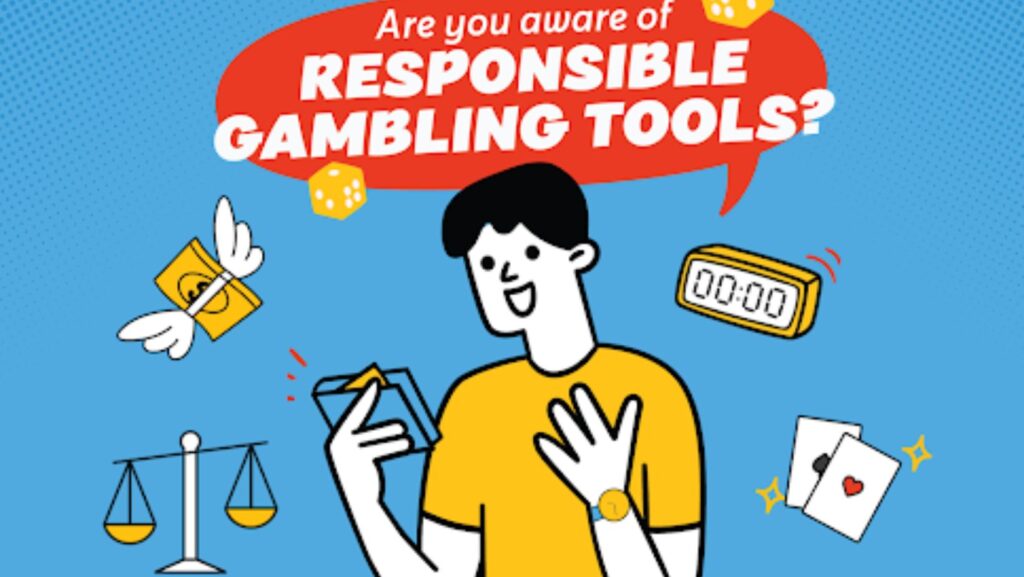Online gambling continues to grow across the globe, making traditional casino experiences more accessible than ever before. Undeniably, this opportunity is beneficial for risk-seekers, who can enjoy the best titles from anywhere. At the same time, this flexibility creates challenges. It’s no secret that gambling-related activities can be addictive, and vulnerable users are likely to struggle with compulsive disorders. Many operators contribute to resolving the problem, but there are still concerns that should be addressed. Explore the measures adopted by leading online casinos and the gaps that they need to cover as soon as possible.
How Operators Promote Safer Gaming
The variety of online casinos operating in the market allows players to join their sites with a few taps and try the hottest games without delay. Undeniably, most service providers primarily focus on generating revenue, but reputable companies like Ex Bet also care about their customers. Promoting a responsible approach to this risky entertainment has already become an industry standard that licensed platforms must stick to. So, what do trusted online casinos do to prevent the growing rate of compulsive disorders among their members?
Advanced Monitoring and Behavioral Analytics
A single spin in a slot machine doesn’t make a user a gambling addict. People are different, with everyone having their own perceptions and psychological barriers when it comes to problem habits. Online casinos now integrate advanced monitoring systems, powered by AI and Machine Learning. These technologies work around the clock and track all users’ activities on the platform or in the mobile app. By tracking metrics such as deposit frequency, time spent gambling, and sudden changes in spending, the system can quickly detect players with the first signs of addictive habits. AI is trained to identify typical patterns and alert members if they notice suspicious behaviors.
On-Site Limits
Limiting expenses and time in online gambling is the golden rule for all players. Unfortunately, not all users are able to resist the temptation to deposit again after several losses. Attempts to win back are often characterized as “chasing losses,” and users should avoid such actions. If a player is unable to control themselves independently, reliable online casinos offer built-in tools that help at this point:
- Deposit limits. Once a user reaches the maximum spending amount they indicated, the website blocks the possibility of replenishing the gaming balance
- Loss limitations. If a user loses a specific sum, they can no longer place real-money bets (the ban is temporary)
- Cooling-off period. This feature allows users to freeze their accounts on the site for a chosen term
- Self-exclusion tools. These programs allow blocking all gambling-related content and help recover from problems

Instead of burying these options in hard-to-navigate menus, leading sites place them front and center during account creation or within the cashier interface. The visibility of cooling-off periods and other assistants for responsible gaming increases the chance that players will think over their habits and use these tools to stay in control of their actions in the long run.
Access to Support Resources and Employee Training
If a user experiences the first symptoms of compulsive problems, they can contact the support service and get comprehensive guidance on what they should do next. Moreover, many casinos provide users with links to helplines and support organizations on their official websites. Users can contact professionals immediately and receive treatment. Gambling addiction is a severe mental health disorder, so the sooner it’s addressed, the less harmful the negative consequences are.
Transparency and Public Reports
Leading gambling companies actively participate in safer gaming initiatives and report their contribution to this sector. Transparency helps build trust, so this feature eventually attracts more players to a specific online casino. As users are becoming more aware of the risks of this entertainment, they are more picky when selecting a place to spin the reels and claim bonuses. Many gamblers now opt for socially responsible brands that guarantee a high level of consumer protection and enhanced security.
Casinos’ Mistakes in Safer Gaming Practices
A lot has already been done to address the challenge, but the number of compulsive players is still high. The inconsistent implementation of responsible gambling practices in the market is among the main gaps. For example, an operator may have efficient protection technologies in developed countries, but lack initiatives in emerging markets. Such decisions are driven by differences in legal frameworks and requirements across jurisdictions. This inconsistency creates a double standard and suggests that some initiatives are driven more by regulation than genuine concern for residents’ well-being.
Mixed messaging in marketing is another problem. Of course, operators work in a competitive environment and need to implement all the possible measures to stand out and profit. Offering bright promotions that encourage spending is the most common strategy, which actually goes against responsible gaming practices. The footer of the platform may include information about safer habits and access to treatment organizations, but the main page is full of thrilling bonuses that attract customers. Operators should learn to balance these two aspects and never add misleading conditions that may confuse players.

